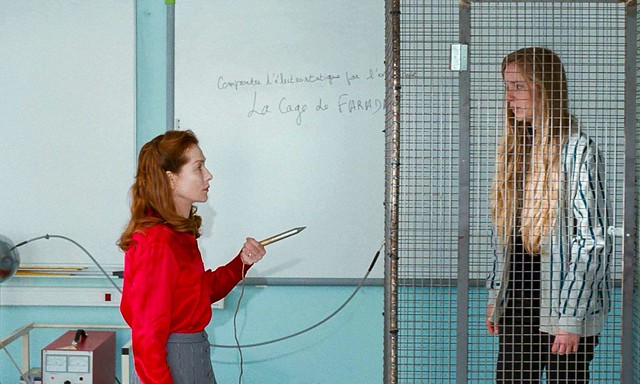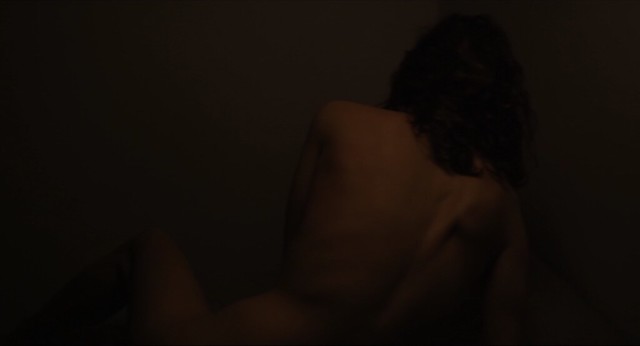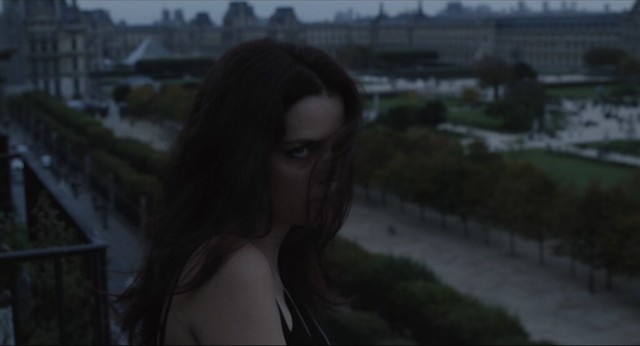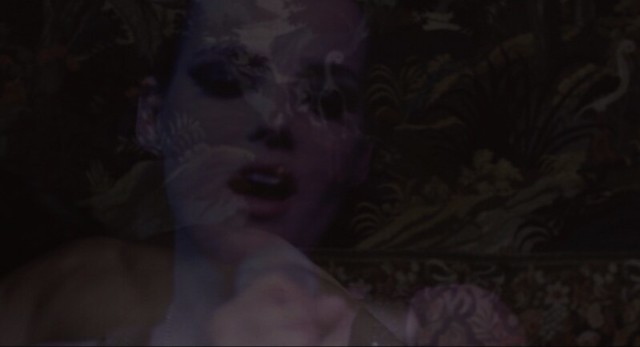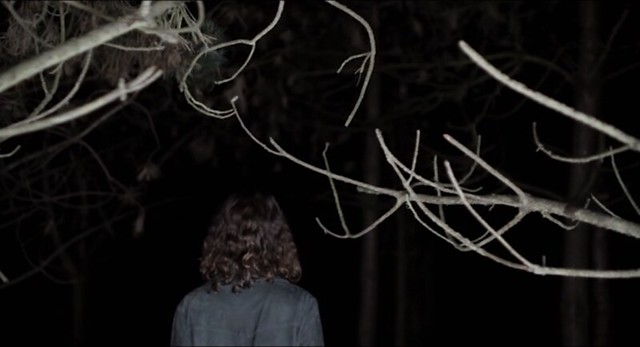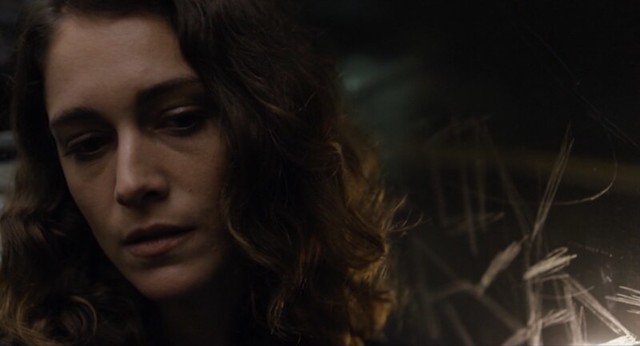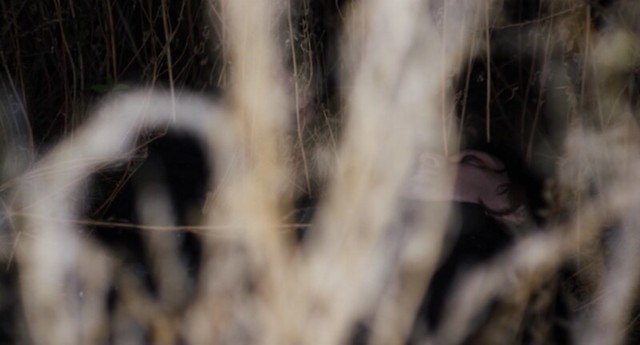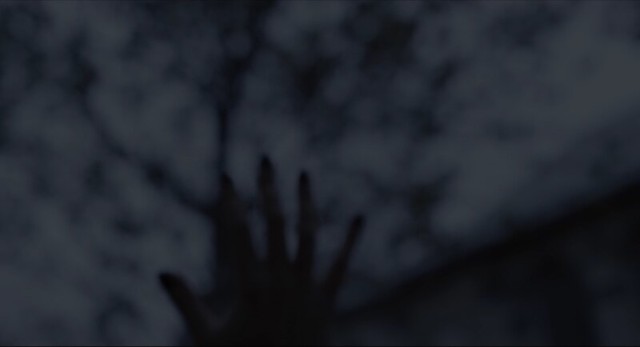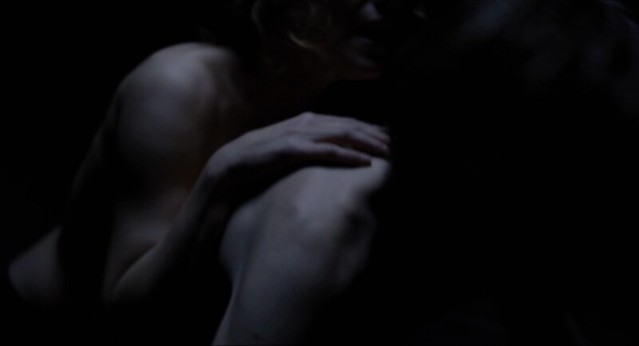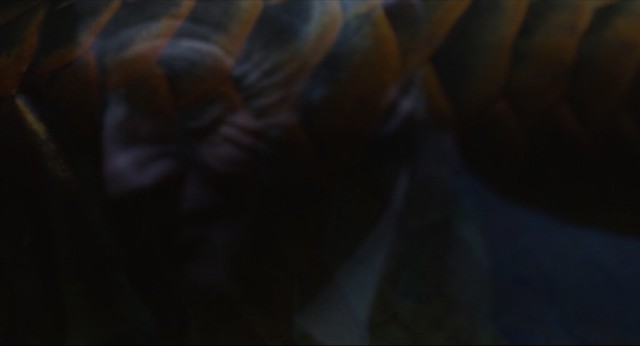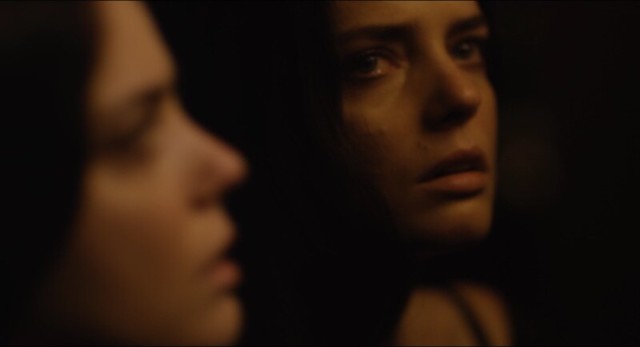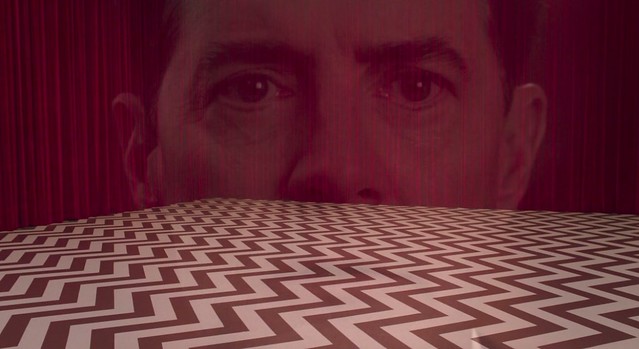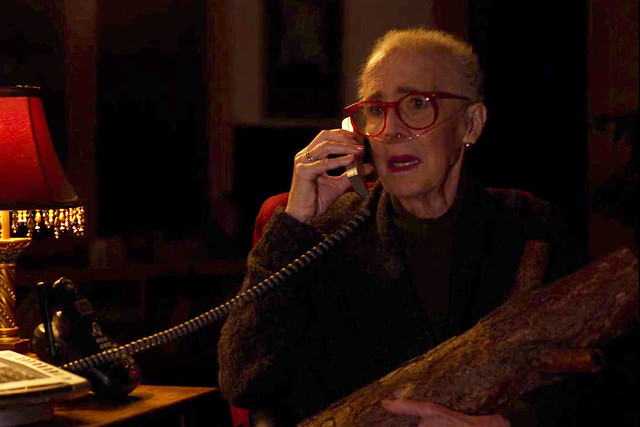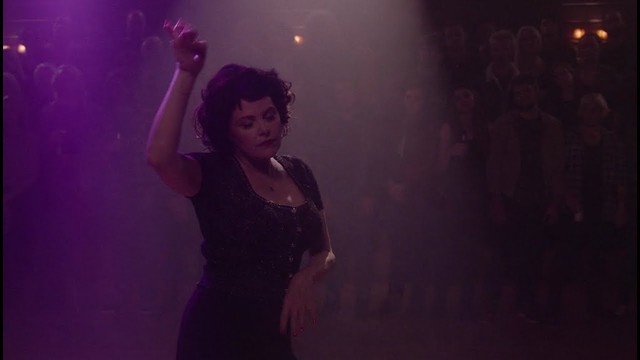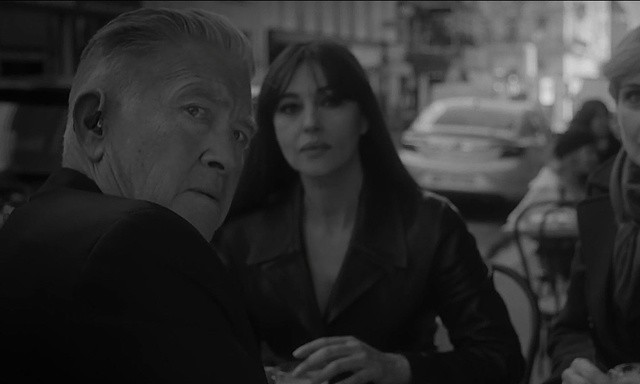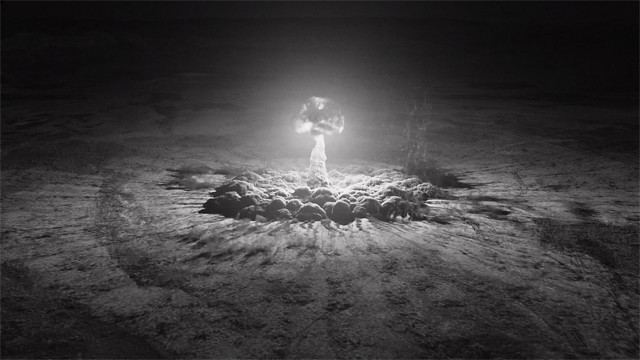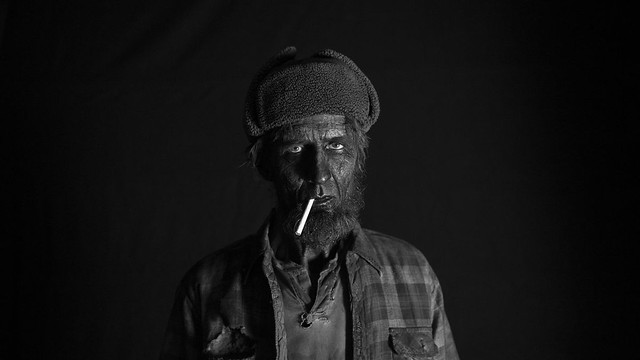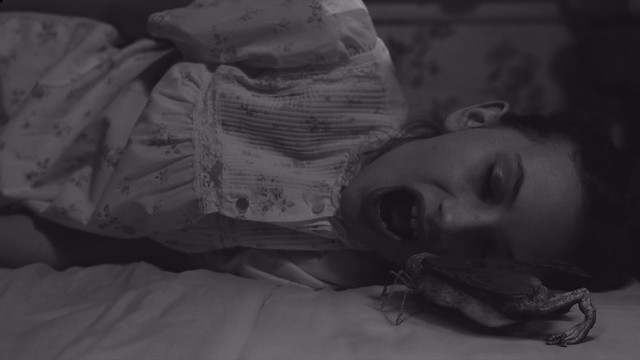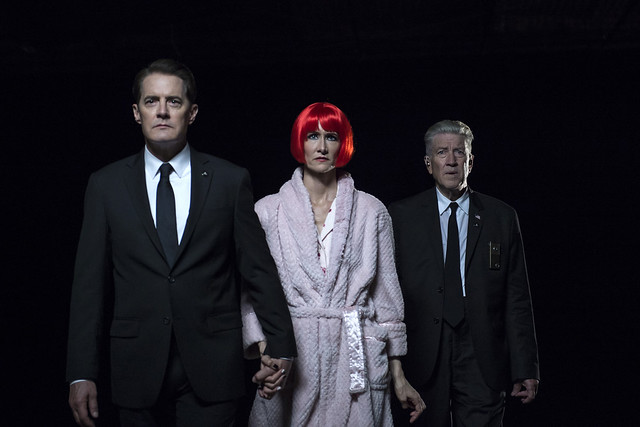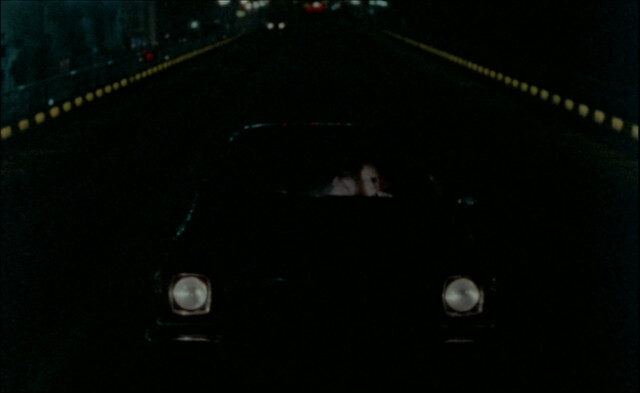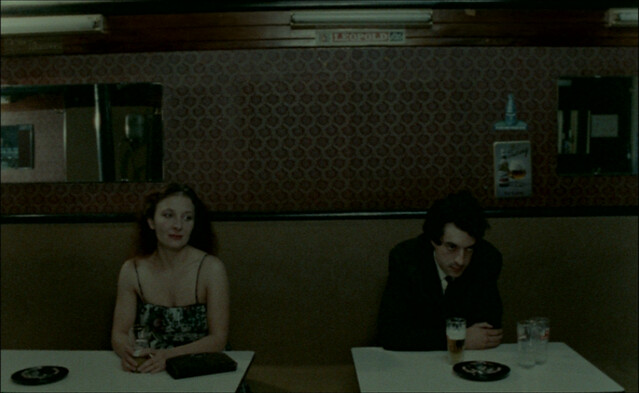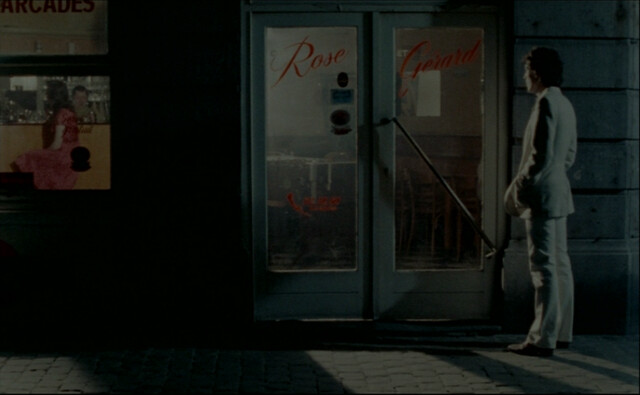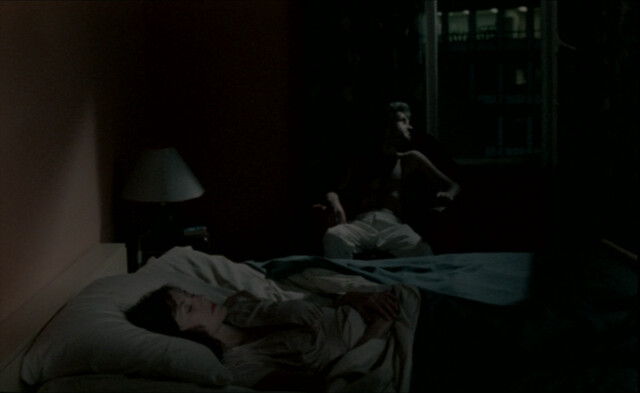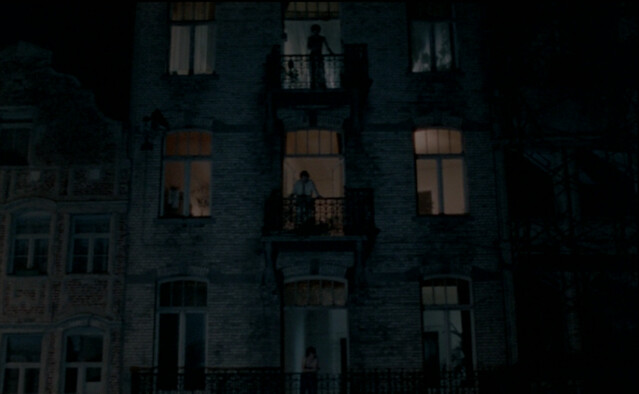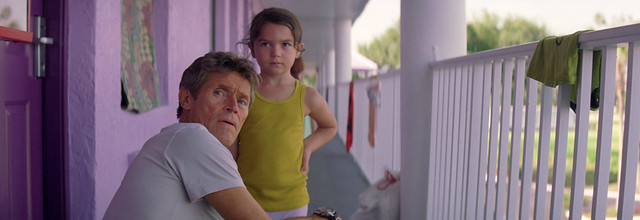
Sean Baker, a director of much praised iphone shot movie Tangerine, digs deeper into the flip side of American Dream with The Florida Project, starring kids and featuring the lives of kids on Route 192, under the shadow of Disney World. As with Tangerine, Baker uses mostly untrained non-actors to portray people on the skid and just have them run with the materials they were given. The result is stunning work of authenticity, brimming with humor, heartache and much humanism.
Moonie (Brooklynn Prince), a six year old girl living in the pink motel called Magic Castle with her young, tattooed irresponsible, daisy dukes wearing mom, Hally (Bria Vinaite). Moonie and her friend Scooty are always up to no good and wrecking havoc - spitting on neighbor's car from the balcony, starting fire in an abandoned house, panhandling tourist for ice cream money, etc., much to chagrin of the good-hearted motel manager Bobby (Willem Defoe). It doesn't really help that Hally is a real fuck-up. Always facing eviction for whatever violations against the motel policy and late for rent, she panhandles, steals, even prostitutes herself to make the rent.
The fake happiness of tourist subculture surrounding Disney World sharply contrasts with the pure joy and innocence of childhood captured by Baker. While kids are having fun, the adults in the film have to deal with depravity, submission, humiliation and consequences of being parents. Kids can have fights one day and make up next day as if nothing happened. Adult life is more complicated than that. With Hally, you couldn't picture a more stereotypical welfare mom. But she is also a loving mom, always trying to protect Moonie from the world and make the best out of ugliness of their surroundings.
But the film's about the kids being kids, always curious, always screaming and yelling, running across the various balconies and up and down the stairs of colorful motels, all named similar to Disney attractions - Future Land, Alibaba, Magic Castle and so on, and the nearby grassy swamp full of empty houses. It's beautifully captured verité style in mostly 35mm by Mexican DP Alexis Zabe (Silent Light, Post Tenebras Lux).
The performances by three kids – Brooklynn Prince, Valeria Cotto (Jancey) and Christopher Rivera (Scooty) are so natural and so untamed, it makes you wonder how on earth Baker ever managed to bring them out. Firebrand newcomer Vinaite is also great, easily topping Riley Keough's portrayal of white trash skank in American Honey (which will make a handsome double feature as Flipside of American Dream). But the range these kids have, especially Prince who seems to convey range of emotions on cue, is astounding.
There is so much joy and happiness of childhood in The Florida Project. For almost two hours running time, we spend our time invested with Moonie and her friends' (mis)adventures. As Hally digs herself a hole time and time again, and as the inevitable finally catches up with her and her daughter, we deeply feel for Moonie and her well-being. We know it's not a documentary because there is unmistakable face of Willem Dafoe trying to pass as a real person (and he does because he is a great actor), Caleb Landry Jones shows up for a moment too. We know it's a make-believe and that everything is going to be all right. But the final moment of the film, taking place in the real Magic Kingdom, shot on shaky iphone, really got me emotionally. It is, shall we say, pure magic.
The Florida Project plays as part of NYFF 2017 at Film Society of Lincoln Center on 10/1 and 10/3. Please visit FSLC website for tickets and more info.
